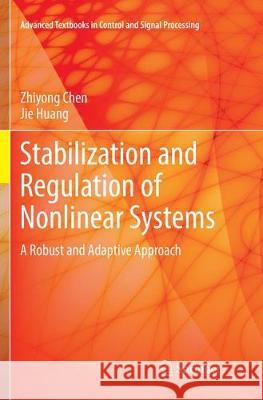Stabilization and Regulation of Nonlinear Systems: A Robust and Adaptive Approach » książka
topmenu
Stabilization and Regulation of Nonlinear Systems: A Robust and Adaptive Approach
ISBN-13: 9783319379579 / Angielski / Miękka / 2017 / 356 str.
Kategorie BISAC:
Wydawca:
Springer
Seria wydawnicza:
Język:
Angielski
ISBN-13:
9783319379579
Rok wydania:
2017
Wydanie:
Softcover Repri
Numer serii:
000123335
Ilość stron:
356
Waga:
6.36 kg
Wymiary:
23.5 x 15.5
Oprawa:
Miękka
Wolumenów:
01











